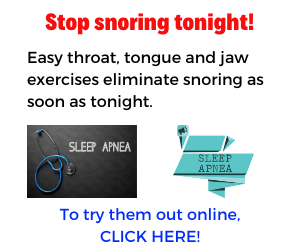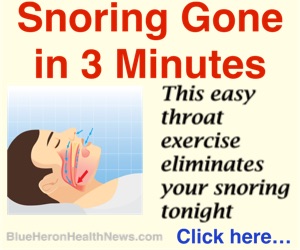Snoring is a common sleep disturbance that affects millions of people worldwide, often leading to disrupted sleep patterns and daytime fatigue. Whether you’re the one snoring or sharing a bed with a snorer, finding an effective solution to alleviate snoring can greatly improve overall sleep quality and well-being. Fortunately, there are various products and remedies available that claim to help with snoring, ranging from nasal strips to specialized pillows. In this comprehensive guide, we’ll explore the different options available and provide tips for choosing the right something to help with snoring.
Understanding the Causes of Snoring
Before exploring solutions, it’s essential to understand what causes snoring in the first place. Snoring occurs when the flow of air through the mouth and nose is obstructed during sleep, leading to vibrations of the soft tissues in the throat. This obstruction can be caused by various factors, including:
- Relaxation of throat muscles: When we sleep, the muscles in our throat and tongue relax, narrowing the airway and making it more likely for tissues to vibrate as air passes through, resulting in snoring.
- Nasal congestion: Allergies, colds, sinus infections, or structural abnormalities such as a deviated septum can cause nasal congestion, further obstructing airflow and contributing to snoring.
- Sleep position: Sleeping on one’s back can exacerbate snoring, as gravity pulls the tongue and soft tissues backward, narrowing the airway and promoting snoring.
- Excessive alcohol consumption: Alcohol relaxes the muscles in the throat and tongue, increasing the likelihood of airway collapse and snoring episodes during sleep.
- Excess weight: Being overweight or obese can lead to the accumulation of fatty tissues around the neck and throat, increasing the risk of airway obstruction and snoring.
With these factors in mind, let’s explore some of the options available to help alleviate snoring and improve sleep quality.
Nasal Strips and Nasal Dilators
Nasal strips and nasal dilators are adhesive strips or devices that are applied to the outside of the nose to help open up the nasal passages and improve airflow. They work by gently pulling the nostrils open, which can reduce nasal congestion and make breathing easier during sleep. Nasal strips are often made of flexible, spring-like bands embedded in adhesive material, while nasal dilators are typically made of soft, flexible materials that conform to the shape of the nostrils.
These products can be an effective option for individuals whose snoring is primarily due to nasal congestion or obstruction. By improving nasal airflow, nasal strips and nasal dilators can help reduce the severity of snoring and promote better sleep quality. However, it’s important to note that they may not be effective for everyone, particularly those whose snoring is caused by factors such as throat muscle relaxation or sleep position.
Anti-Snoring Pillows
Anti-snoring pillows are specially designed pillows that are intended to help reduce snoring by promoting better head and neck alignment during sleep. These pillows often feature contoured shapes or built-in supports that help keep the head and neck in a neutral position, which can prevent the tongue and soft tissues from collapsing backward and obstructing the airway. Some anti-snoring pillows also incorporate features such as elevated headrests or cut-out sections to further facilitate proper airflow and reduce snoring.
While anti-snoring pillows can be a convenient and non-invasive option for addressing snoring, it’s important to manage expectations regarding their effectiveness. While they may help reduce snoring in some individuals, they may not provide significant relief for others, particularly those with more severe or complex snoring issues. Additionally, it may take some time to adjust to sleeping on a new pillow, so it’s important to give yourself time to acclimate to the changes.
Mandibular Advancement Devices (MADs)
Mandibular advancement devices (MADs) are oral appliances that are worn in the mouth during sleep to help prevent airway collapse and reduce snoring. These devices work by repositioning the lower jaw (mandible) slightly forward, which helps keep the airway open and prevents the tongue and soft tissues from collapsing backward and obstructing airflow. MADs are typically custom-fitted by a dentist or sleep specialist to ensure optimal comfort and effectiveness.
MADs can be an effective option for individuals with mild to moderate snoring or obstructive sleep apnea. By promoting better airflow and preventing airway obstruction, MADs can help reduce the frequency and intensity of snoring episodes, leading to improved sleep quality and daytime alertness. However, it’s important to consult a healthcare professional before using a MAD, as they may not be suitable for everyone, particularly those with certain dental or jaw conditions.
Continuous Positive Airway Pressure (CPAP) Therapy
Continuous positive airway pressure (CPAP) therapy is a highly effective treatment for obstructive sleep apnea, a condition characterized by recurrent episodes of complete or partial airway obstruction during sleep. CPAP therapy involves wearing a mask connected to a machine that delivers a continuous stream of air pressure to keep the airway open and prevent apneas (pauses in breathing) from occurring. While CPAP therapy is primarily used to treat sleep apnea, it can also help reduce snoring in individuals with this condition.
CPAP therapy is considered the gold standard treatment for obstructive sleep apnea and is highly effective at preventing airway collapse and improving sleep quality. However, it does require wearing a mask during sleep, which can take some time to adjust to. Additionally, CPAP therapy may not be suitable for everyone, particularly those with certain medical or lifestyle considerations. It’s important to consult a healthcare professional to determine if CPAP therapy is the right option for you.
Lifestyle Modifications
In addition to using products or devices to help with snoring, there are several lifestyle modifications that can help reduce snoring and improve sleep quality:
- Maintain a healthy weight: Excess weight, particularly around the neck and throat area, can contribute to airway obstruction and snoring. By maintaining a healthy weight through regular exercise and a balanced diet, you can reduce the severity of snoring and improve overall sleep quality.
- Avoid alcohol and sedatives before bedtime: Alcohol and sedatives relax the muscles in the throat and tongue, increasing the likelihood of airway collapse and snoring. Avoid consuming these substances in the hours leading up to bedtime to minimize snoring and promote better sleep quality.
- Sleep on your side: Sleeping on your back can exacerbate snoring, as gravity pulls the tongue and soft tissues backward, narrowing the airway. Encourage your partner to sleep on their side instead, which can help prevent airway obstruction and reduce snoring.
- Address nasal congestion: Nasal congestion can contribute to snoring by obstructing airflow through the nose. Use saline nasal sprays or nasal strips to help clear the nasal passages and improve breathing during sleep.
- Practice good sleep hygiene: Establish a regular sleep schedule, create a relaxing bedtime routine, and create a conducive sleep environment to promote better sleep quality and reduce snoring.
In conclusion, snoring can be a disruptive and frustrating sleep-related issue that affects both the snorer and their bed partner. Fortunately, there are various products and remedies available to help alleviate snoring and improve sleep quality. Whether you opt for nasal strips, anti-snoring pillows, mandibular advancement devices, CPAP therapy, or lifestyle modifications, it’s important to choose something that addresses the underlying causes of snoring and fits your individual needs and preferences. By taking proactive steps to address snoring, you can enjoy a more restful night’s sleep and wake up feeling refreshed and rejuvenated.



